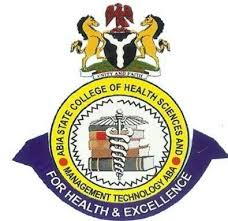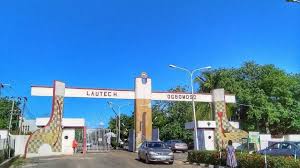Abia State College of Health Sciences and Management Technology (ASCOHSMAT) is a reputable institution in Aba, Abia State, Nigeria, that offers a wide range of health-related programs. For new students, understanding the structure and breakdown of school fees is essential for proper financial planning. In this article, we’ll provide an in-depth look at the college’s fee structure, factors influencing the fees, and how to obtain accurate information for the upcoming session.
Understanding the School Fee Structure
The school fees at Abia State College of Health are composed of several components, each covering specific services and resources. Below is a breakdown of the typical elements that make up the total fee package for students:
- Tuition Fees: This forms the core of the fee structure, covering the cost of academic instruction, lectures, and related academic services. Depending on the program, tuition can range from ₦60,000 to ₦100,000 per session.
- Accommodation Fees: For students who choose to stay on campus, this fee covers the cost of housing. Hostel fees typically range between ₦15,000 and ₦25,000 per session.
- Registration Fees: A fee is required for enrollment in the institution. This may be a one-time fee or charged for every session. It generally ranges between ₦5,000 and ₦10,000.
- Library Fees: This fee grants access to the college’s library resources, both physical and digital. It is typically around ₦10,000 to ₦15,000.
- Laboratory Fees: For students in programs requiring practical work (e.g., Environmental Health Technology, Dental Health), laboratory fees cover the cost of equipment, tools, and consumables. These fees can range from ₦10,000 to ₦20,000 depending on the course.
- Examination Fees: This covers the costs of assessments, examinations, and other evaluation processes. Examination fees generally range from ₦10,000 to ₦15,000 per session.
- Miscellaneous Fees: This may include fees for student union activities, sports, campus services, and medical screening, often amounting to an additional ₦5,000 to ₦10,000.
Factors Affecting School Fees
Several factors can influence the total school fees that a student may need to pay at Abia State College of Health:
- Program of Study: Some programs, especially those that require specialized equipment and practical sessions (e.g., Dental Health or Public Health Technology), may have higher tuition and laboratory fees compared to others.
- Mode of Study: Full-time students typically pay more than part-time students because of continuous academic engagement. Part-time or weekend programs, if available, might have adjusted fee structures.
- Student Category: Domestic students often have a different fee structure compared to international students. The cost for international students might include additional charges like administrative or visa processing fees.
- Government Policies: Policies at the federal or state level can impact school fees, especially if there are changes in subsidies or financial allocations to educational institutions.
- Institutional Policies: Internal decisions made by the college’s management can also influence fee adjustments, such as increases to cover infrastructure development or inflation.
How to Obtain Accurate Information
Given the dynamic nature of school fees, prospective students need to verify the fee structure through reliable sources. Here are key steps to obtain the most accurate and up-to-date information about fees for the new session:
- Visit the Official College Website: The college’s official website is the best place to get accurate information. Most institutions have a dedicated section on fees, often outlining the breakdown and any payment plans available for new students.
- Contact the Admissions Office: If the website does not provide sufficient details, the next best option is to reach out directly to the admissions or student affairs office. They can provide firsthand information about the total fees, payment deadlines, and any other financial obligations.
- Consult Previous Students: Speaking with students currently enrolled in the college or recent graduates can give you practical insights into the costs associated with certain programs, hidden charges, or any changes to fees that may not be immediately reflected online.
- Follow Official Announcements: Abia State College of Health may make announcements regarding fee adjustments, payment deadlines, or scholarships, so it’s important to stay informed by following their social media handles or visiting the campus noticeboards regularly.
Payment Methods and Structure
The college offers a flexible payment structure to accommodate students. Usually, students are allowed to pay in instalments, with 60% of the total fees due at the beginning of the first semester, and the remaining 40% payable during the second semester. Payment is typically made via bank deposit or online transfer to designated bank accounts.
Financial Aid and Scholarships
While the school fees are relatively affordable compared to some other health institutions, the college may offer financial aid or scholarships to deserving students. These are often based on academic performance or financial need. It is advisable for new students to inquire about available opportunities during their admission process.
Conclusion
Understanding the school fees for Abia State College of Health Sciences and Management Technology is key to successfully planning your academic journey. The fee structure is comprehensive, covering a range of services and resources, from tuition to laboratory fees. Various factors, such as the program of study and government policies, can influence the total cost. By consulting reliable sources like the college’s official website or admissions office, prospective students can obtain accurate and updated information to make well-informed decisions.
With flexible payment plans and opportunities for financial aid, the institution remains accessible to a broad range of students looking to pursue careers in the health sector. Proper financial planning, early payment of fees, and careful consideration of accommodation and other costs will help ease the transition into the new academic session.







